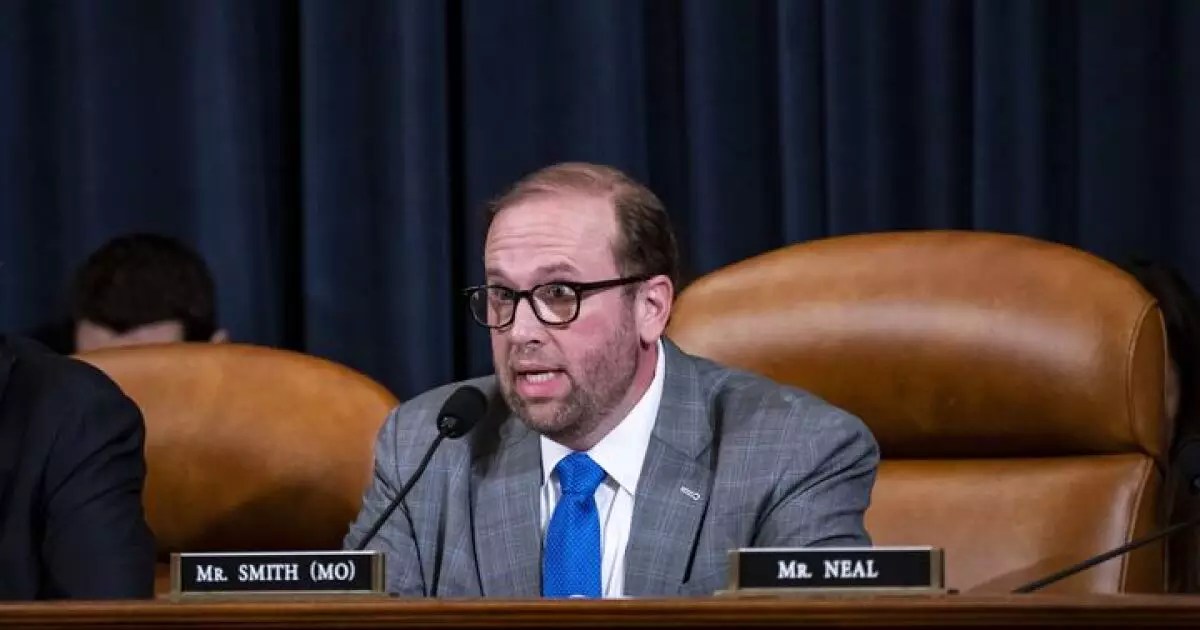The debate surrounding the Tax Cuts and Jobs Act (TCJA) marks a pivotal moment in the 119th Congress, highlighting a significant intersection between fiscal responsibility and economic growth. The House Ways and Means Committee has commenced deliberations that delve deep into the implications of extending the TCJA, a legislation shaped heavily during the Trump administration. Central to this conversation is a stark divide between concerns over escalating the national debt and aspirations for sustained economic momentum.
Proponents of the TCJA, including Chairman Jason Smith, argue that the tax cuts provided essential stimulus to the American economy, effectively propelling it out of a sluggish period characterized by the last administration’s policies. Smith cited numerous indicators of economic health, including rising wages, decreasing unemployment rates across demographics, and a historic reduction in poverty levels. These, he insists, are testaments to the efficacy of the tax cuts as “rocket fuel” for economic progress.
However, critics raise valid concerns about the sustainability of such growth, questioning whether it was genuinely organic or merely a short-term response to fiscal manipulation. The TCJA’s provision for tax cuts has led to significant increases in national debt, a pathway that, according to detractors, will ultimately burden future generations.
This fiscal dilemma is sharply illustrated by the opposing views presented by Democratic committee members, who vehemently argue against the financial irresponsibility of further tax cuts that could exacerbate the national debt. Ranking Democrat Richard Neal articulated his incredulity that lawmakers could simultaneously aim to mitigate the national debt while proposing a measure that would potentially add an enormous $4 trillion to it. This tension serves as a reminder of the fragile nature of fiscal policy in a politically polarized environment.
The Democratic side emphasizes a different narrative—one where increased taxation on wealthy individuals and corporations could alleviate the debt burden. Statements made by representatives such as Lloyd Doggett highlight a philosophical shift within segments of the Republican Party, acknowledging a reality where taxes cannot be cut without impacting national financial stability.
The TCJA introduced two significant provisions that alarmed the municipal finance community: the cessation of advance refundings of tax-exempt bonds and the imposition of a cap on state and local tax (SALT) deductions. These elements complicate the financial landscape for state and municipal governments and raise valid concerns about funding vital public services.
While bipartisan agreement exists on the alignment of middle-class tax rates, contentious discussions around corporate taxes and SALT adjustments remain. The ongoing conflict illustrates the broader ideological rift on how best to balance taxation with public welfare.
In a strategic move designed to bolster the case for the TCJA, Republicans have brought forth a diverse witness panel, featuring small business owners, accountants, and individual taxpayers. Their testimonials aim to highlight the positive ramifications of the tax cuts on employment and growth in local economies. Conversely, the Democratic narrative aligns corporate taxation with being a necessary step towards responsible governance and fiscal prudence.
The contrasting presentations underscore an evolving narrative within American tax policy, where the outcome of discussions about the TCJA will ripple through various sectors, affecting everything from family finances to investments in infrastructure.
The broader implications of this tax debate resonate within the context of raising the national debt ceiling. The outcomes of these discussions could have lasting effects not only on fiscal policy but also on America’s credit rating and financial standing in the global economy. congress is faced with the challenging task of finding a middle ground between fostering economic stability through tax incentives and promoting accountability through debt management.
As the 119th Congress grapples with the complexities of tax reform, it is clear that the stakes are high. Key congressional figures must navigate a landscape marred by deep ideological divides, consider the long-term ramifications of fiscal decisions, and ultimately craft policies that secure economic growth while ensuring fiscal responsibility. What emerges from this contentious debate will define not just the future of tax policy but also the economic trajectory of the nation in the years to come. The fate of the TCJA reflects a broader narrative about governance, accountability, and the ongoing struggle to balance growth with sustainability in a rapidly changing economic environment.


Leave a Reply